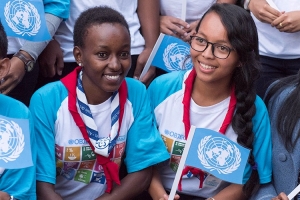No more tax exemptions for Belgium in partner countries Guinea and Rwanda
Deputy Prime Minister and Minister for Development Cooperation Alexander De Croo signs two general cooperation agreements with partner countries Guinea and Rwanda in the margins of the General Assembly of the United Nations in new York. Among other things, the agreements put into writing the Belgian commitment to pay taxes on the import and local purchase of goods and services in our partner countries.
 No more tax exemptions for Belgium in partner countries Guinea and Rwanda
No more tax exemptions for Belgium in partner countries Guinea and Rwanda The new general cooperation agreements outline the framework for current and future cooperation with our partner countries. These are in line with the important Belgian development cooperation reforms over the past few years. Last year, the new Belgian development agency Enabel was launched and also the Belgian development cooperation priorities underwent a significant change.
From now on, the strengthening of human rights and working on sustainable and inclusive economic growth are at the center of the Belgian development approach which is completely in sync with the Sustainable Development Goals. We also put a lot more emphasis on the role of the private sector and digitization and new technologies as a lever for development. The goal is to come to new general cooperation agreements with all fourteen partner countries.
No more tax exemptions
The new general cooperation agreements also have an important segment about paying taxes in partner countries. From now on, Belgium commits itself to waive the tax exemptions on imports and local purchases of goods and services, which donor countries usually enjoy.
This decision is in line with the 2030 Agenda for Sustainable Development and follows the Addis Tax Initiative, which was launched during the UN Conference on Financing for Development in Addis Abeba in 2015. Developing solid tax systems is an important condition for developing countries to be able to finance their own development in the longer run. With this decision Belgium supports the fiscal policy and the domestic resource mobilization in partner countries.


